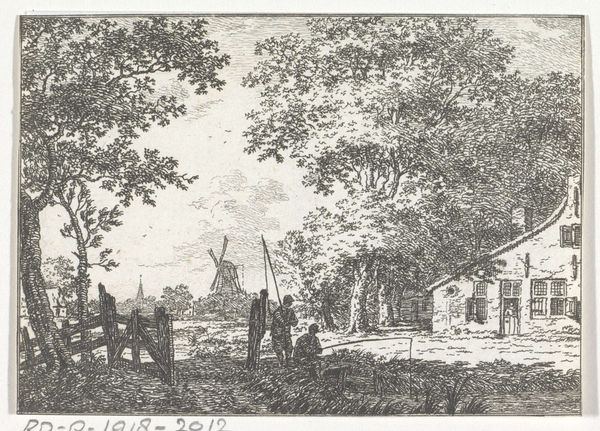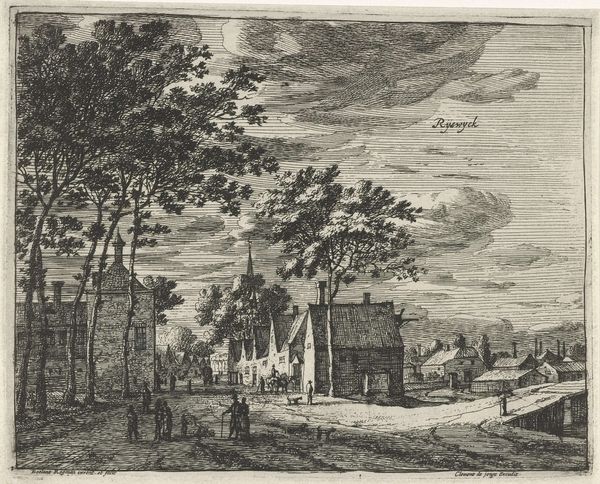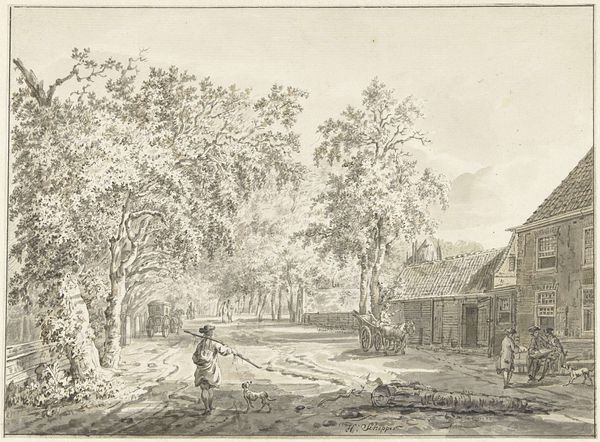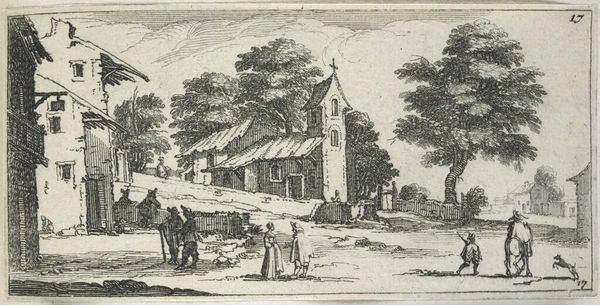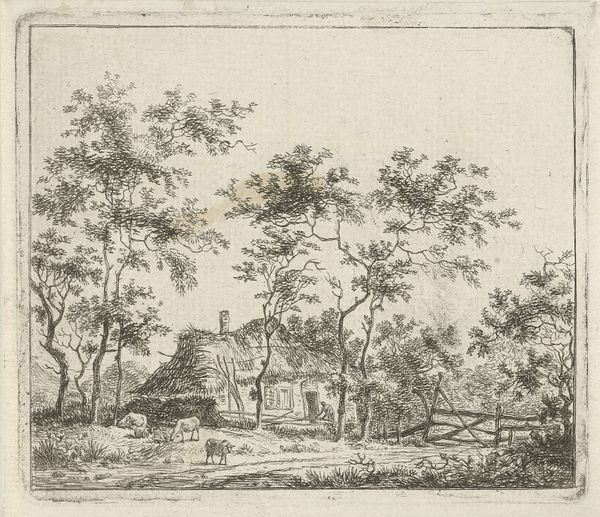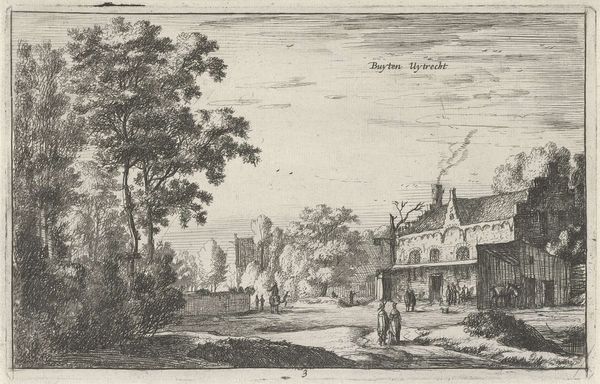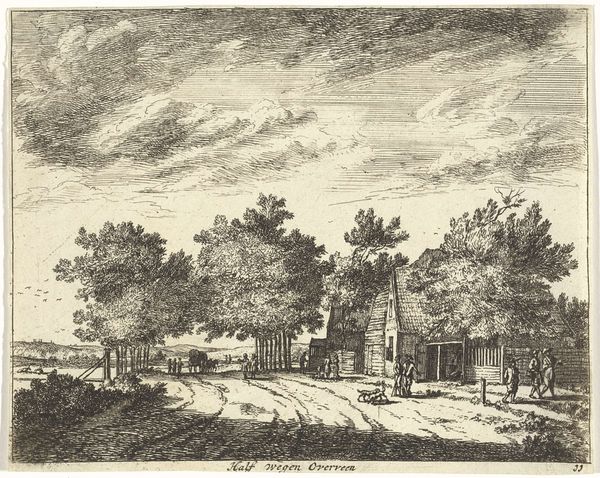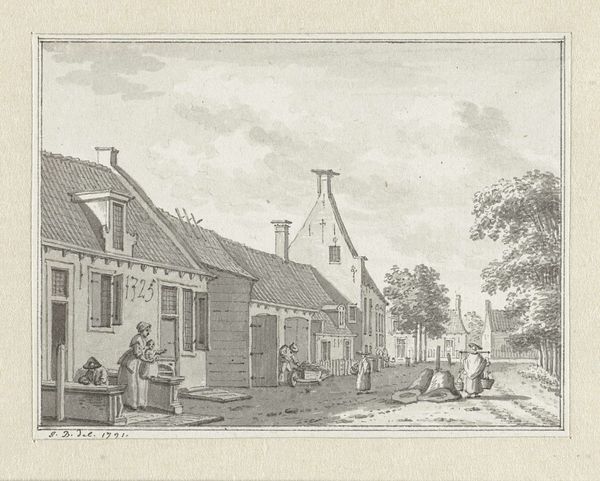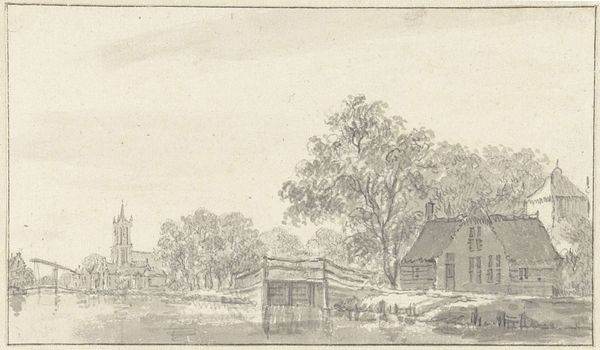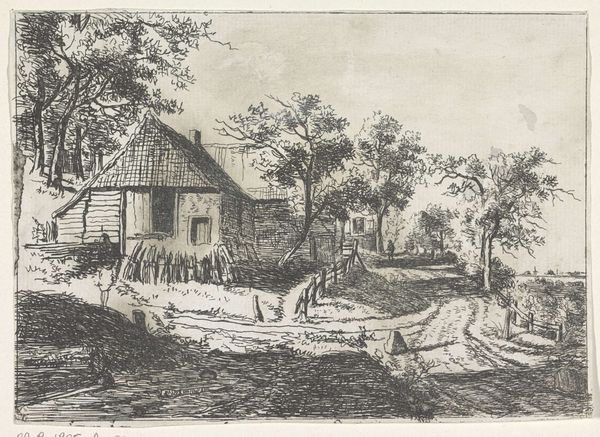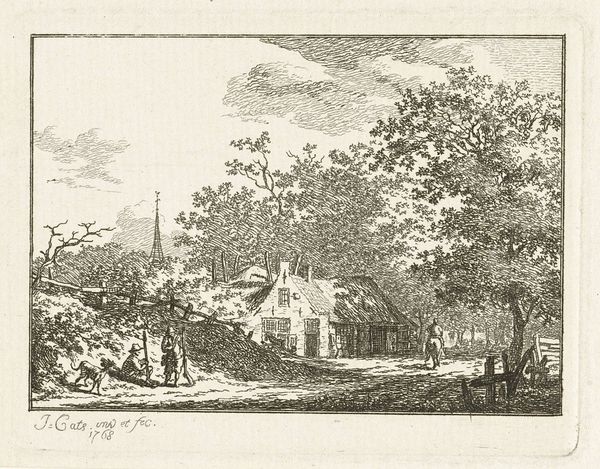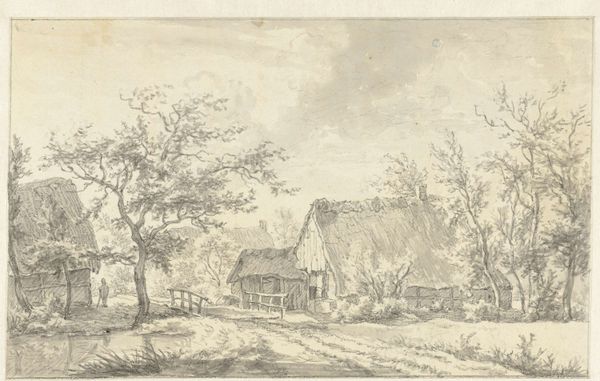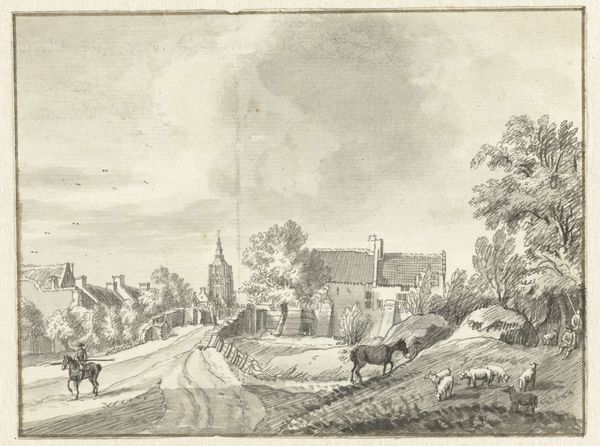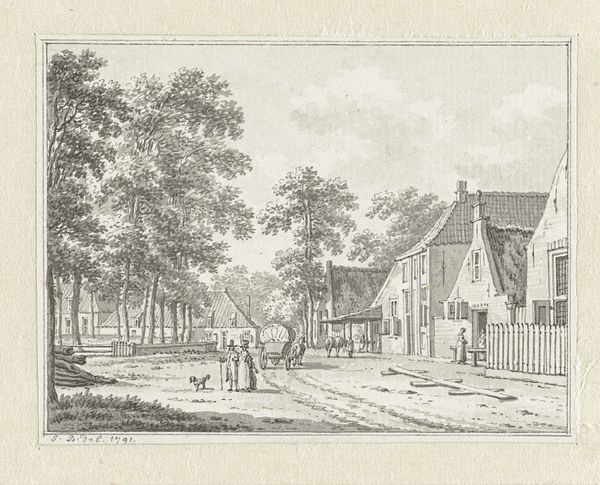
etching
#
dutch-golden-age
#
etching
#
landscape
#
genre-painting
#
realism
Dimensions: height 151 mm, width 187 mm
Copyright: Rijks Museum: Open Domain
Jan Vincentsz van der Vinne created this print, "View of the Inn Emmaus," using etching, sometime between 1663 and 1721. Etching is a printmaking technique that relies on the controlled corrosion of metal. The artist would have coated a metal plate with a waxy, acid-resistant substance, then scratched an image into the wax, exposing the metal. The plate was then submerged in acid, which bit into the exposed lines, creating grooves. After removing the wax and inking the plate, the ink would settle into the etched lines. Finally, the plate was pressed onto paper, transferring the image. The marks of this process are clearly visible. Consider the social context: prints like this allowed for mass production and dissemination of images, contributing to the growth of a visual culture available beyond the elite. The relatively easy printmaking process democratized image-making and distribution, making art more accessible to a wider audience. Appreciating the processes helps us understand its cultural impact, moving beyond traditional notions of fine art.
Comments
No comments
Be the first to comment and join the conversation on the ultimate creative platform.
